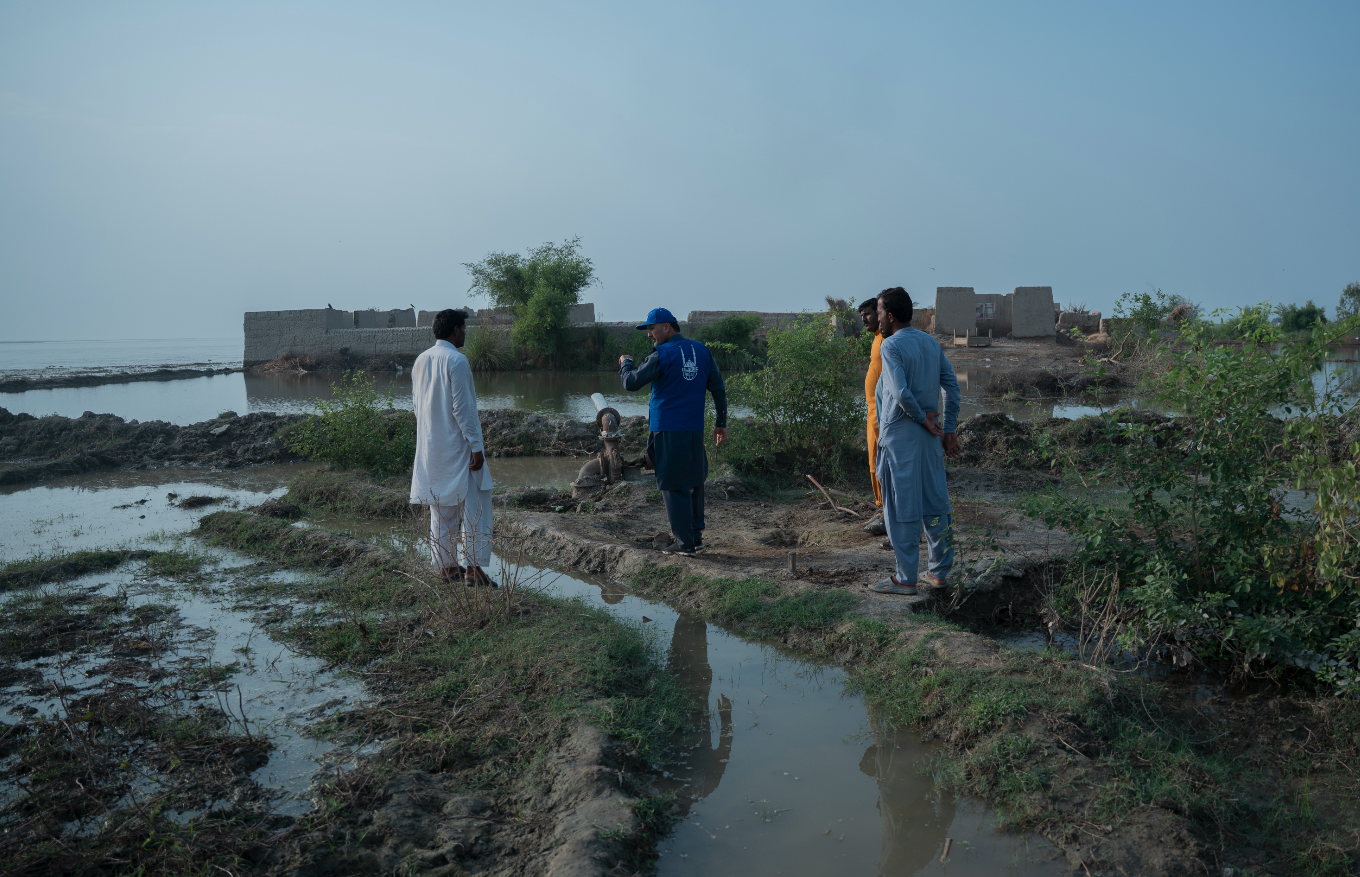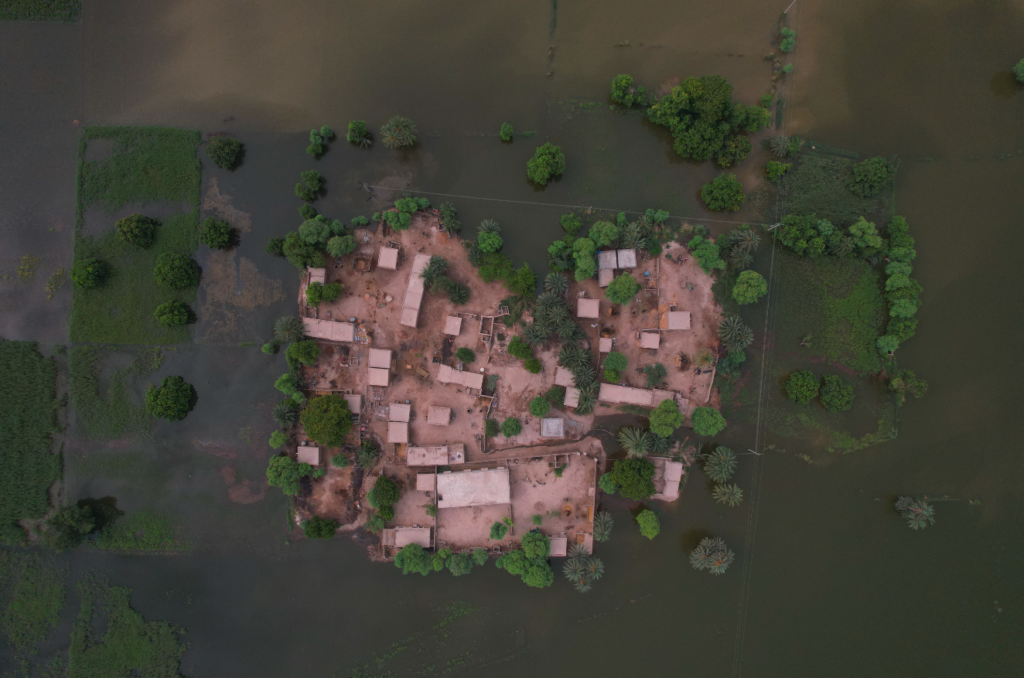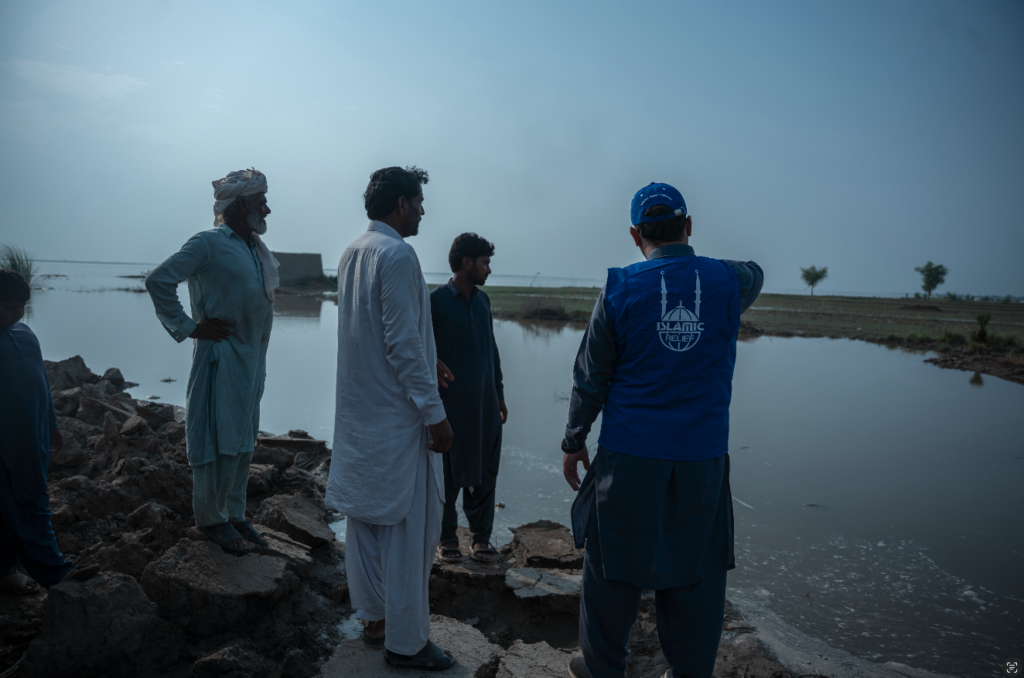
08.17.25
Pakistan Floods Emergency: Islamic Relief Responds to Devastating Monsoon Rains
Pakistan Faces One of Its Deadliest Floods in Recent Years
Pakistan is once again reeling from a climate-fuelled disaster. Severe monsoon rains have unleashed widespread destruction across the northern districts of Khyber Pakhtunkhwa – including Buner, Shangla, Swat, Dir, Bajaur, Battagram, and Mansehra. Entire valleys have been inundated by flash floods, cloudbursts, landslides, and mudslides, leaving behind a trail of devastation.
The human toll is staggering:
- More than 645 confirmed fatalities nationwide
- Over 900 people injured, with numbers expected to rise as search and rescue operations continue
- Thousands of families displaced from their homes
- Entire villages cut off due to collapsed roads and washed-out bridges
- Crops, livestock, and shelters destroyed, leaving families without food or livelihoods
District Buner has been hit hardest, reporting over 180 deaths and dozens of injuries. Infrastructure has been severely damaged, with roads impassable, bridges swept away, and communication networks down in many affected areas. Rescue helicopters have also struggled due to dangerous weather, further complicating relief operations by Islamic Relief Pakistan.
A Humanitarian Crisis Deepens
The floods have not only claimed lives but also stripped families of their homes, livelihoods, and sense of security. In rural districts, where agriculture and livestock are the primary sources of income, the destruction of farmland and animals has left families without any means to recover.
Children, women, and the elderly remain the most vulnerable. With health services overwhelmed and clean water in short supply, there is an increased risk of disease outbreaks. Displaced families are sheltering in overcrowded temporary camps or makeshift shelters, with little access to basic necessities.
Experts have once again highlighted how climate change is intensifying Pakistan’s vulnerability. The country, despite contributing very little to global carbon emissions, remains among the most climate-affected nations. Repeated cycles of flooding, drought, and heatwaves continue to undermine resilience, trapping millions of people in cycles of poverty and displacement.

Islamic Relief’s Emergency Response
Islamic Relief has been operating in Pakistan for more than 30 years, providing both immediate humanitarian relief and long-term development support. Our teams mobilised within 36 hours of the flooding, reaching remote mountainous areas where access is severely limited.
Working in coordination with government authorities and humanitarian partners, Islamic Relief is:
- Delivering life-saving medical assistance and distributing essential health supplies to affected communities
- Providing emergency shelter, clean water, and sanitation for displaced families
- Distributing food aid and survival packs to those cut off by the floods
- Conducting needs assessments and documenting first-hand accounts to ensure a coordinated and effective humanitarian response
Based on initial assessments, Islamic Relief aims to reach 15,000 families – approximately 100,000 individuals – with immediate life-saving assistance.
Our response plan includes:
-
Emergency Phase (0–3 months): Focused on saving lives through food, shelter, medical care, and water.
-
Recovery and Rehabilitation (12–18 months): Supporting communities to rebuild homes, restore livelihoods, and regain stability.
-
Long-Term Development: Addressing climate resilience, disaster preparedness, and sustainable livelihoods to reduce future vulnerability.
A Call to Solidarity
The scale of the Pakistan floods underscores the urgent need for global solidarity. Every donation makes a tangible difference. By supporting Islamic Relief’s Pakistan Floods Emergency Appeal, you are directly helping to provide food, shelter, clean water, and medical care to families who have lost everything.
Islamic Relief’s global network ensures that aid reaches those who need it most, in the most difficult-to-reach places. Together, we can help communities survive this immediate crisis and rebuild their futures — Donate Now

